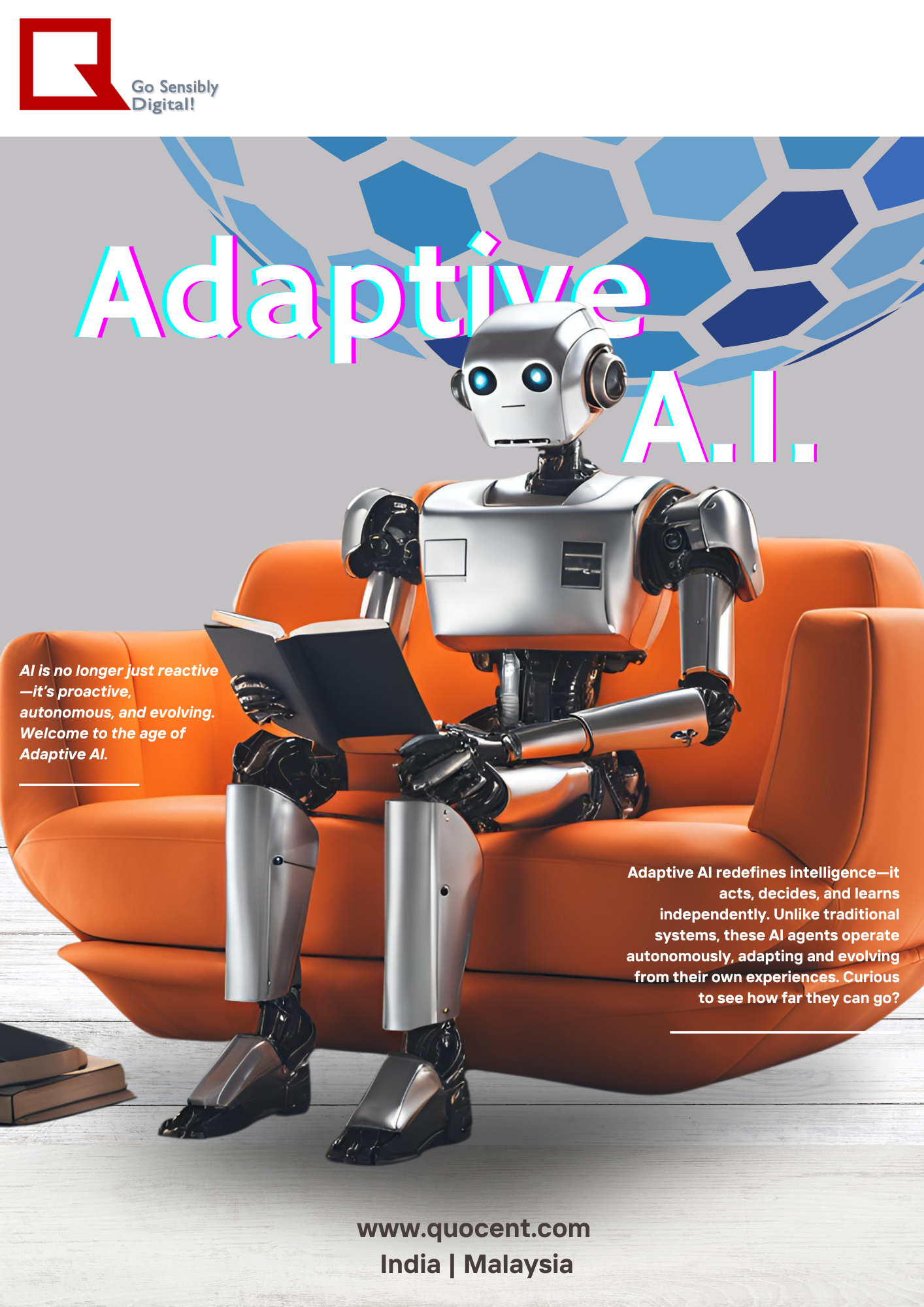Adaptive AI is revolutionising how businesses and industries operate. Unlike traditional AI, which follows fixed instructions, adaptive AI can learn from its environment, adjust to new data, and make decisions with minimal human intervention. This adaptability makes AI systems more efficient, flexible, and capable of tackling complex challenges.
Understanding Adaptive AI
Adaptive AI uses advanced algorithms and real-time data processing to make decisions and adjust its behavior as situations change. It works like a self-learning system, constantly improving its performance and accuracy. This capability allows it to optimize processes, enhance productivity, and reduce errors. For instance, it can plan a trip for you, schedule your day, create a diet plan, monitor employees, etc.
Why Is Adaptive AI Important in the IT Industry?
In the IT industry, adaptive AI is transforming how companies manage their digital infrastructure. For example, AI systems can monitor networks, detect cybersecurity threats, and respond to incidents before they cause disruptions. By automating these tasks, IT teams can focus on developing innovative solutions rather than handling routine maintenance.
How Does Adaptive AI Impact Different Industries?
– Healthcare: AI-powered diagnostic tools can analyze medical data and provide faster, more accurate diagnoses.
– Manufacturing: Adaptive robots improve production efficiency by adjusting to changes in assembly lines.
– Finance: AI trading bots analyze market trends and execute trades in real time, maximizing profitability.
– Transportation: Self-driving vehicles use AI to navigate safely, reducing accidents and improving efficiency.
– Customer Service: AI chatbots provide personalized support, improving customer satisfaction and response times.
– Information Technology: Automated systems ensure reliable network performance and cybersecurity, reducing downtime and protecting sensitive data.
Advantages and Challenges of Adaptive AI
Adaptive AI offers numerous benefits, including faster decision-making, improved efficiency, and cost savings. However, it also presents challenges, such as ensuring accountability, addressing biases in data, and protecting privacy. Overcoming these challenges is essential to fully harness AI’s potential.
What Does the Future Hold for Adaptive AI?
As adaptive AI continues to evolve, it will become even more integrated into everyday life. Collaboration between technology companies, policymakers, and researchers will be crucial to ensure that AI is used ethically and responsibly. By embracing these innovations, businesses can stay competitive and drive sustainable growth.
Explore AI Solutions with Quocent
Quocent is leading the charge in AI innovation, helping businesses unlock new opportunities and improve efficiency. Discover how our AI solutions can transform your operations and help you stay ahead of the competition.



